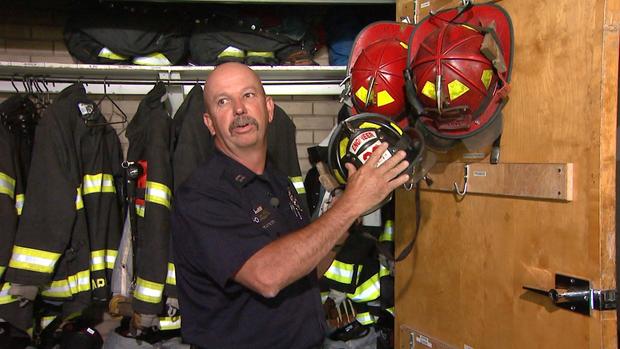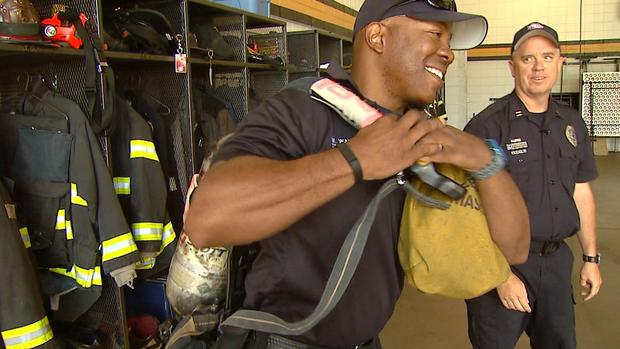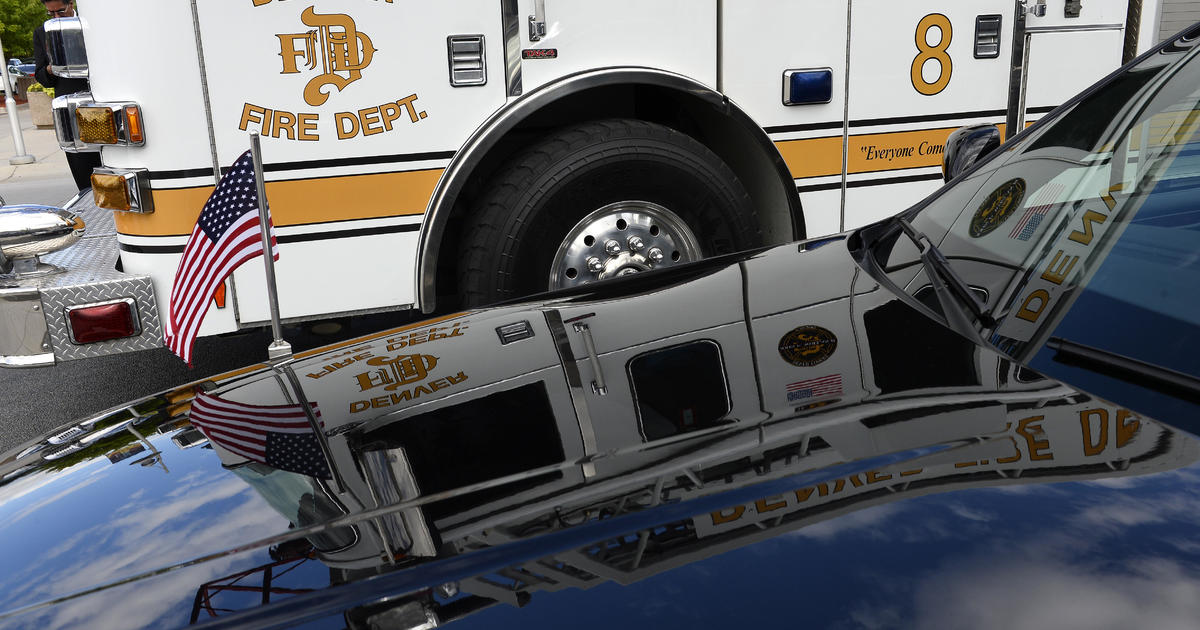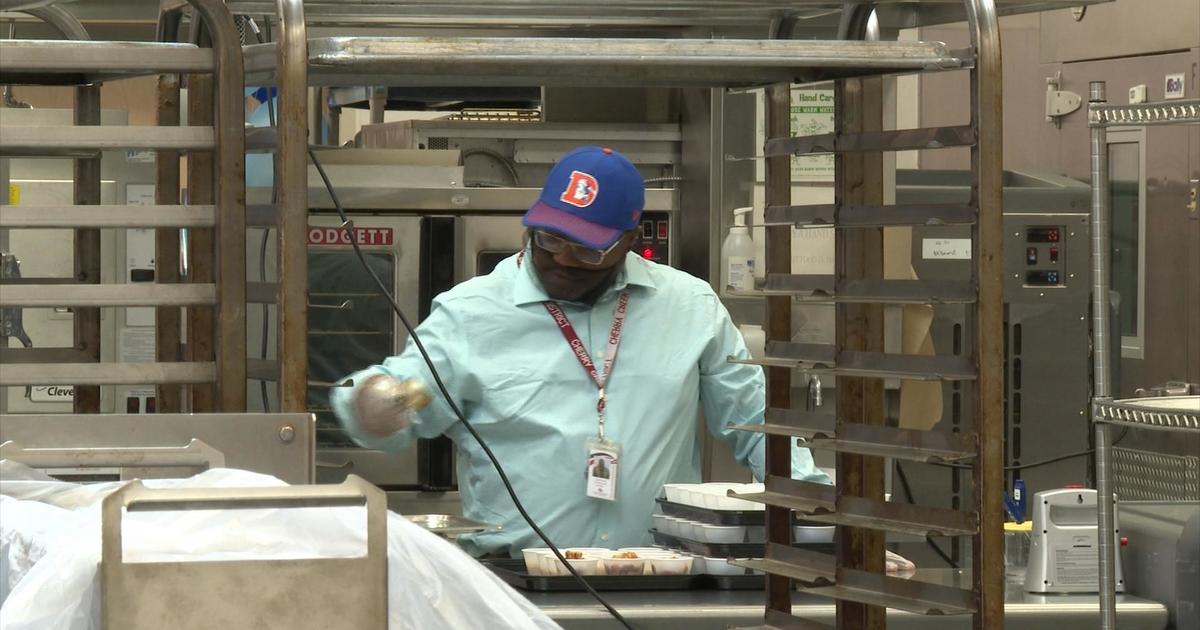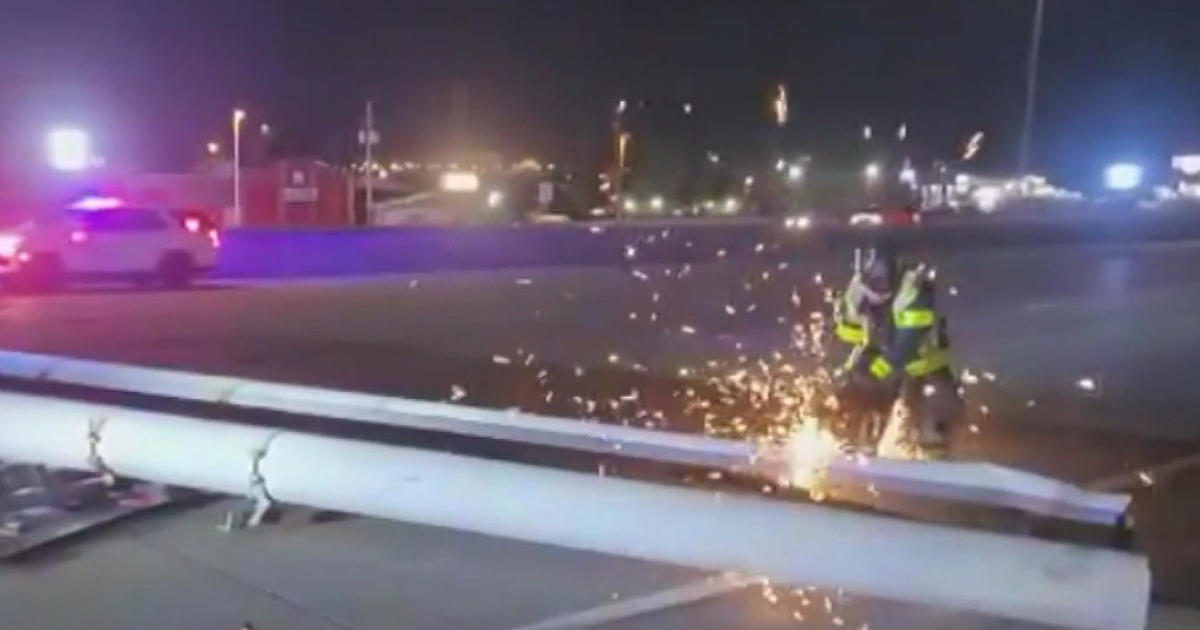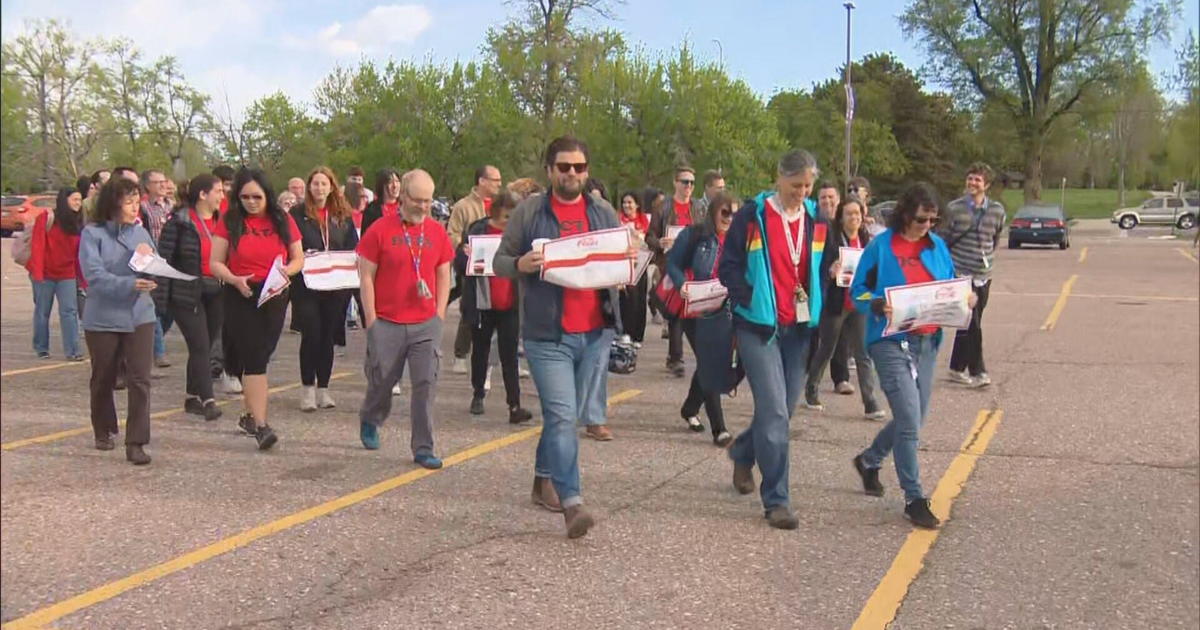Local Fire Departments Fight Invisible Danger: Cancer
DENVER (CBS4) – It's a firefighter's job to run into a burning building. But after the smoke clears, the true threat of the profession could appear years later.
Firefighters have a higher risk of cancer than the rest of the population, according to a recent study.
Researchers tracked 30,000 firefighters from Philadelphia, Chicago and San Francisco over a 60 year period. The study found firefighters were more than twice as likely to get mesothelioma from asbestos. They also found higher rates of respiratory, digestive and urinary cancers, along with earlier onset of kidney, bladder and prostate cancers.
After fighting fires for nearly three decades, Denver Fire Capt. Fred Burke was diagnosed with colon cancer. The 52-year-old found out after a routine colonoscopy, "I was scared. Not just for myself, but for my family."
Burke says he was both devastated and confused.
"We make a living out of helping people. We run into burning buildings." Burke said, "To be someone in need of help was an awkward spot to be in."
For Chad Burdorf, the diagnosis was kidney cancer. The Denver Fire captain got the news before his 40th birthday. Burdorf says the risk of cancer wasn't something he thought about when he signed up to be a firefighter two decades ago.
"It was something that old people got. We were all young firefighters. We were more worried about what the building is going to do, not what it was going to do to us 20 years later," said Burdorf.
For years, firefighters would rush into burning buildings, often without oxygen and emerge covered in ash and soot. Getting deep into a fire and coming back dirty was a badge of honor.
"It has always been a very proud thing when your gear was dirty," said Burdorf who is working to create a "culture change" amongst his colleagues to help prevent cancer.
Denver firefighters have new oxygen tanks and masks to prevent inhaling dangerous carcinogens. There are also new protocols in place requiring firefighters to wear the equipment from the moment they enter the fire until the time they get back on the truck.
Firefighters are also required to shower off any chemicals that could be absorbed through the skin.
"Once the fire is out, the smoke is still in our clothing and in our equipment," said Burke. "Even though the most obvious hazard is gone the most deadly hazard we are still carrying around with us."
Now each Denver firefighter has a second set of bunker gear. After every fire, they bag up their equipment and send it off to an industrial cleaner to rid them of carcinogens.
The Aurora Fire Department has put similar precaution in place after a 41-year-old firefighter was forced into early retirement because of lymphoma. Capt. Diane Lord says three other Aurora firefighters are currently suffering from cancer, believed to be contracted on the job.
"There is a prostate cancer, a skin cancer and another lymphoma that they are working with right now," Lord said.
Just like a firefighter injured in a fire, the firefighters are now working to make sure cancer cases are classified as "in the line of duty" so their families can receive full benefits.
Despite the safety precautions, Burdorf says cancer is part of the job.
"There is only so much we can reduce the risk."
Fortunately, both Chad Burdorf and Fred Burke caught their cancers early and have a very good prognosis.
LINK: Firefighters and Cancer Study
- Written by Mark Ackerman for CBSDenver.com
